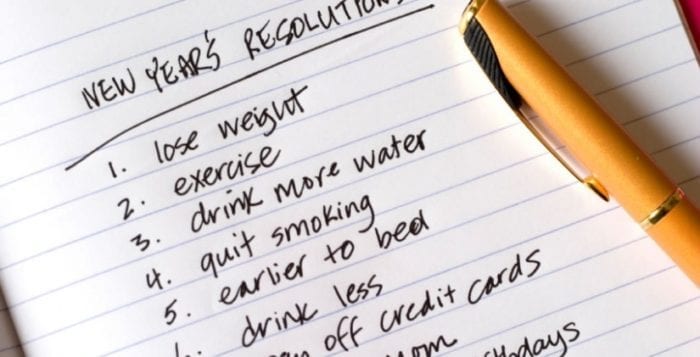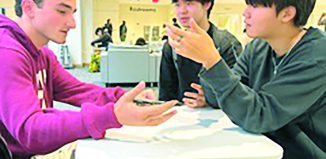Between You and Me: Winning the game of New Year’s resolutions

By Leah S. Dunaief
So, how are those New Year’s resolutions going? Do you even remember what they were? If you are sticking to them, heartfelt congratulations. You are one of few with the discipline and tenacity to hang on. But if you are in the majority for having slipped or temporarily abandoned your resolves, here is some help. It’s called habits.
Habits can be a valuable tool to change your life, both for the better and not. By that I mean, we can slip into some unwelcome behaviors and they become habits almost before we realize it. Or we can consciously take control and set out to break or redefine or make new ones, and as they become part of a routine, they become easier to follow.
This is all far simpler than it sounds, of course. There is a whole branch of science dealing with habits, the unconscious behavioral patterns formed to deal with actions. “We do not so much direct our own actions as become shaped by them,” wrote Jeffrey Kluger in his introductory chapter for a special edition from Time Inc. called “The Power of Habits.”
He points out, by quoting Léon Dumont — the 19th century French psychologist and philosopher — that “a garment, after having been worn a certain amount of time, clings to the shape of the body better than when it was new. There has been a change in the tissue, and this change is a new habit of cohesion.” That is certainly true of the old, comfy pair of slippers that, despite their age, you hate to replace them, and the old pair of pants that have come to fit you like a glove.
Accordingly, the manner of our actions “fashion for themselves in the nervous system more and more appropriate paths.” Kluger here is again quoting Dumont, who studied the science of laughter, of gratitude, of empathy and, for our purposes here, the science of habits.
William James, the American philosopher greatly influenced by Dumont, suggested that people were little more than “bundles of habits.” The point of all this is to build on the idea that if we can shape our brains and the rest of our nervous systems the way we shape a pair of pants, we can control and redirect our lives to follow the actions we wish to take, namely our resolutions to be better.
Think about how many of our daily moves are just programmed in. We get up in the morning and automatically brush our teeth, take a shower, dress, put up the coffee, get our keys, slide behind the wheel of the car, place the coffee cup in the holder, drive to work, all probably while thinking of something else. Occasionally we are surprised to find we have arrived at our destination without consciously paying attention to the route. Almost all of that execution was the result of habit.
Well, suppose you built another step in there, like running 20 minutes on that treadmill or stationary bike collecting dust in your basement before you got into the shower. You like to watch the morning TV shows? Jog along with them as you watch. If you repeat that action for awhile, it could become a habit and presto! You are doing the recommended minutes of exercise a week without the ironclad discipline seemingly required each day.
It just becomes as much a habit as brushing your teeth. If you are forever locked into dipping into the candy jar in the evenings, and you find you are gaining weight, substitute chilled blueberries or red grapes from a cut-glass bowl within reach of your fingers. Of course you have to remember to buy the blueberries or grapes beforehand, wash them and keep them in the refrigerator at the ready.
Complex habits, like procrastination or chronic lateness or smoking are harder to unlearn — but not impossible. We can rewire ourselves, using substitutions or rewards, splinting a bad habit onto a good one for support or hanging out with those whose actions we would like to emulate.
Here’s the bottom line: We can do it. It will just take time for a new behavior to feel part of our routine, an average of two weeks or so. To become a habit will average 66 days.







